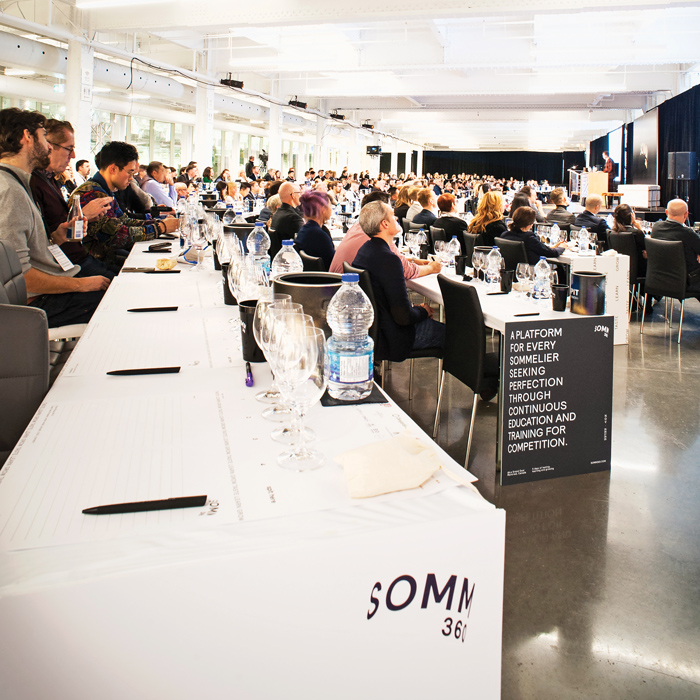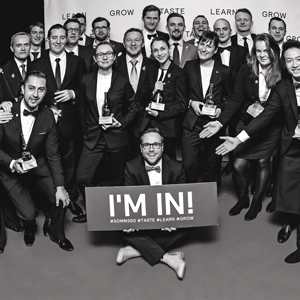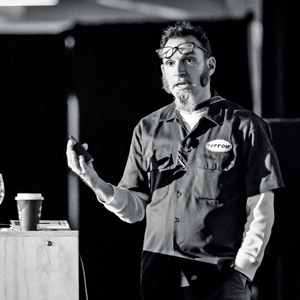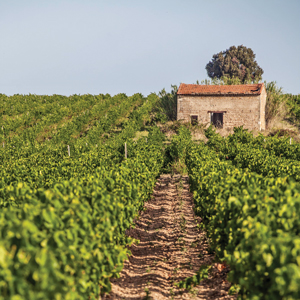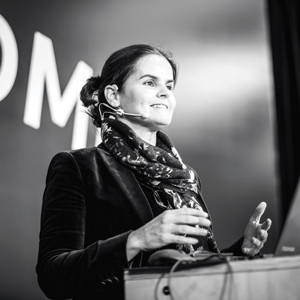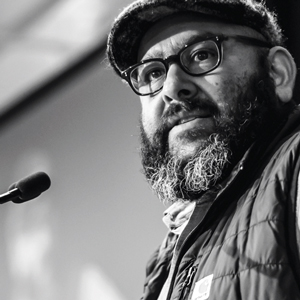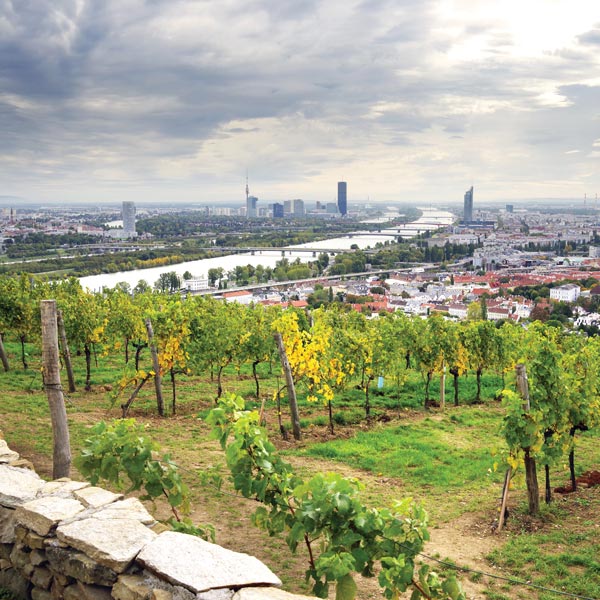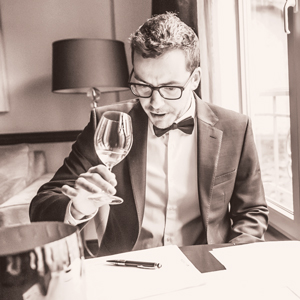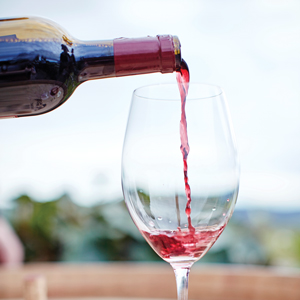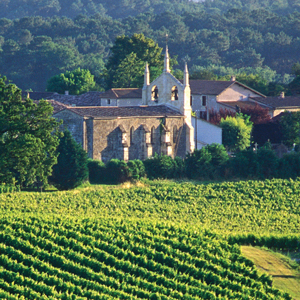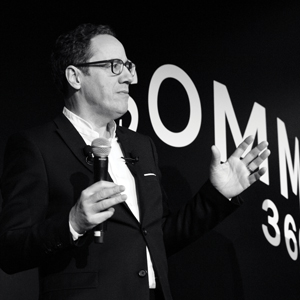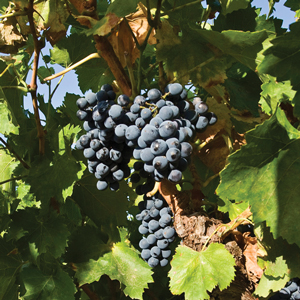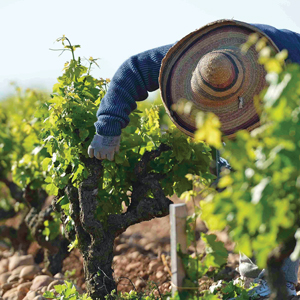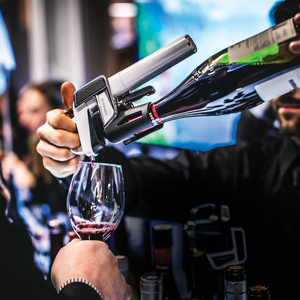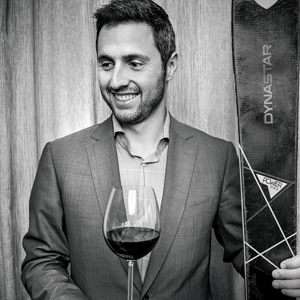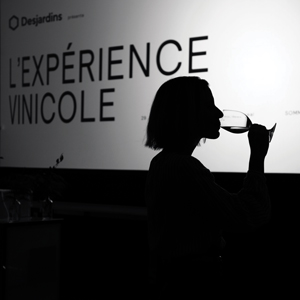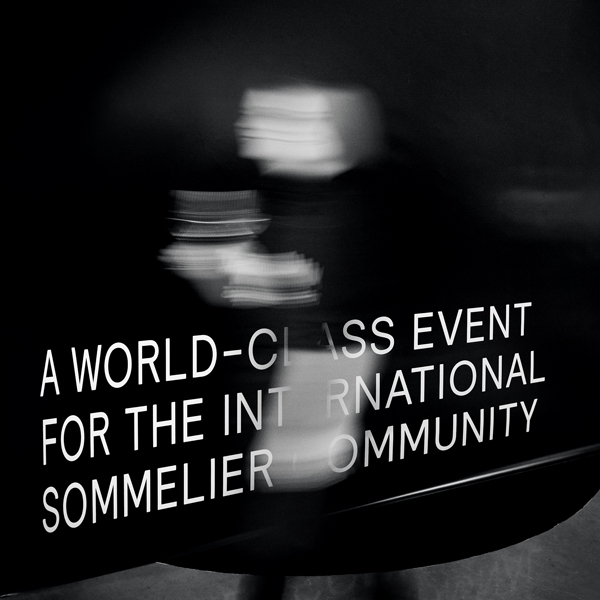SOMM360 is a platform for every sommelier seeking perfection through continuous education and training for competition.
Get the latest info about Somm360
© 2018 SOMM360



The participants at SOMM360 had one important thing in common: their passion for the world of wine. And while their professional paths may differ, their ultimate goal is to better serve the consumer. The more than 300 wine professionals at SOMM360 heard from several speakers about the many different ways to achieve that goal. In the following pages, you’ll discover how.
“From that moment, I started focusing on learning. If you are a wine geek, you need to learn.”
—Fernando Mora MW
Fernando Mora is self-taught when it comes to wine. The 36-year-old Spaniard was a mechanical engineer when he first tried his hand at winemaking in 2008, planting vines in his grandparents’ garden, then making his wine in his bathtub to try to control the temperature. His first attempt at winemaking was not very successful, but he instantly fell in love with every aspect of wine. Mora told the audience at SOMM360 that when he first started making wine and studying it, he had no idea it would lead to both a successful winery and a whirlwind ascension to the rank of Master of Wine. “From that moment, I started focusing on learning. If you are a wine geek, you need to learn.” Since his scientific background helped him learn to become a winemaker, he decided to train as a sommelier “to learn about the different wine regions of the world: their terroirs and their taste.” Fernando Mora earned his MW in 2017, one of the few candidates ever to pass each level of tests on the first attempt. And his wineries in Aragón are helping to redefine Garnacha. His message to the wine professionals at SOMM360 was “the sky is the limit.” Mora said, “sometimes we create our own limits, but if you want something, go for it, and never stop learning!”
The Master of Wine road
For the wine professionals attending SOMM360, the focus was on continuing education and training. If the Master of Wine program is designed to foster a broad knowledge of all aspects of the wine industry, the Master Sommelier diploma is the highest distinction those working in hotel and restaurant beverage service can attain. The common thread is a desire to learn more and improve. Devon Broglie, the chairman of the Court of Master Sommeliers, Americas, led an animated discussion about the rigorous journey that leads to a MS diploma. “The average Master Sommelier has more than 10 years of floor experience before they ever pass their exams, and it takes most candidates three attempts before they pass the exams.” Master Sommeliers Élyse Lambert of Montreal and John Szabo of Toronto joined Devon Broglie in sharing their personal experiences with the SOMM360 audience.
The Master Sommelier path
John Szabo, who became a wine writer after becoming the first Canadian to earn the title of Master Sommelier in 2004, says every heartache and late night spent preparing for exams are absolutely worth it: “I found it useful to think of the time, the effort, the study you are putting in as not a way to achieve a certification but, rather, as a way to acquire a set of useful skills—skills that are eminently saleable in today’s market.” Élyse Lambert says she followed a different path: one that included competition as well as continuing education. “There is a big difference between competition and certification: in competition, you compete against others; but, with certification, you compete against yourself, proving to yourself that you can achieve a higher level.”
Paul Grieco, the sommelier-owner of Terroir Wine Bar in New York, who says he still spends half of his working day front-of-house, questioned the panel about whether becoming a Master Sommelier doesn’t take you away from providing direct service to customers. But John Szabo responded that there should not be a narrow definition of what it means to be a sommelier or a Master Sommelier or a wine professional: “The cornerstone is obviously hospitality, but there are many ways to express that hospitality. Whether you are physically opening a bottle for a guest or describing how that should be done on paper, there are many ways to share that information and create that culture.”
Devon Broglie agreed that the world of the sommelier can be broader than on-the-floor service. He pointed to Rajat Parr, who also spoke at the SOMM360 summit, as an example of a sommelier who has developed his knowledge and tasting skills to become a foremost expert on wine.
From left to right, Devon Broglie MS, Elyse Lambert MS and John Szabo MS
Rajat Parr, SOMM360 Advisory Board member
Morgan Harris MS, from Angler in San Francisco
Tasting, tasting and tasting
Alberto says that another important quality factor is the age of the vines, which produce good quality grapes when they are 35 years old or more. Constantly pruned back, the Garnacha vines basically regulate their own nutritional needs, with a large trunk and a deep root system to act as a reservoir during lean years, when precipitation is low. “It is a finicky grape that thrives with the terroir, the wind and the elevation unique to Campo de Borja.”
Rajat Parr’s conference at SOMM360 was all about his passion for blind tasting. Born in India, he fell in love with wines after training to be a chef at the Culinary Institute of America. As well as being a three-time James Beard Award-winning author, Parr is a winemaker and a mentor to a generation of sommeliers. For him, studying to become a Master Sommelier was one of the ways to satisfy his desire to hone his tasting skills. “In blind tasting, the only way to really look at the wine is through its texture. You don’t learn that just by tasting wines, you have to go to the place where they make the wine and meet the people who make it and feel the energy of the wine.” Rajat Parr believes tasting is more important than ever. “We are right in the middle of the new classic and the old classic in wines, and there’s a lot of fighting in the wine world between what is old and what is new.” Parr says he is seeking the middle ground to appreciate both the old and the new. “Tasting will become more important and more complicated with wines from new regions and more new styles of wines from classic regions.” Rajat Parr says it is discussions like those held at SOMM360 that help the wine industry to continue to grow and evolve.
“I found it useful to think of the time, the effort, the study you are putting in as not a way to achieve a certification but, rather, as a way to acquire a set of useful skills.”
—John Szabo MS





